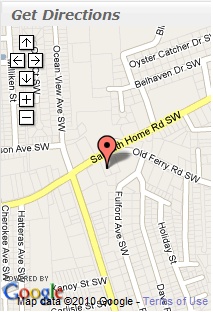Landlord/Tenant Law
Whenever you’re dealing with real estate, there is the potential for legal issues to arise. Landlord/Tenant law encompasses many different facets of the law. It can be very difficult and time consuming to try and maneuver through the legal system alone.
There are also complications and issues that can be eliminated by having an experienced attorney draft or review your lease agreement from the very start.
Our firm can assist you with :
- Residential or Commercial Lease Creation or Review
- Landlord/Tenant Disputes
- Property Management Legal Issues
We work aggressively to preserve your rights in a landlord/tenant dispute. Contact our firm for a free consultation to discuss your case.
Landlord/Tenant FAQ
- What are the landlord’s responsibilities?
- What are the tenant’s responsibilities?
- Can a landlord terminate a tenant’s rights to use the property?
- How can I evict a tenant?
- Can I accept rent if I’m evicting the tenant?
- What happens to the tenant’s personal property in an eviction?
- Can a landlord evict me for retaliatory reasons?
- When can a landlord keep all or part of the security deposit?
- What happens at the end of the time period stated in the lease?
- I gave the tenant 24 hours notice that an agent would be visiting the property but they refused access. The lease agreement doesn’t cover this issue. Can they do that?
These will vary with the lease, but there are certain obligations that are governed by federal and state laws, and cannot be changed, regardless of what the lease says. A landlord must:
- Obey the local housing codes
- Perform any needed repairs necessary to make the property fit and habitable
- Install smoke detectors
- Keep stairwells, walkways, and other common areas maintained and safe
- Keep plumbing, heating, and electrical systems in safe and working order
- If appliances are provided, keep them in working order
Again, these will vary with the lease but there are certain obligations that are governed by federal and state laws, and cannot be changed, regardless of what the lease says. A tenant must:
- Keep the premises as safe and clean as possible
- Notify landlord promptly of any needed repairs
- Not damage the property (or make needed repairs if something occurs)
It depends. You have to have a valid reason for the termination, such as:
- Refusal to pay rent
- Breach of the lease agreement – such as non disclosed pets or individuals living there who were not named in the lease
- “Waste’ to the rental property by the tenant
- Criminal activity
- Material disturbance of the other tenants
- Holding over (i.e. staying after the lease has expired)
You have to file a Complaint in Summary Ejectment and a Magistrate Summons. This is the only legal way to evict a tenant. Changing locks, turning off the electric or water, and removing doors or appliances is not a legal eviction procedure.
No, otherwise the tenant can assert that you waived the breach and the court can end the eviction proceedings.
If the landlord has locked the personal property inside the house, and the tenant is evicted through a court procedure, they will have 10 days to get their belongings out. The tenant must contact the landlord and arrange a time during normal business hours, or any time by agreement of both parties, to come and remove the property. After 10 days, the landlord can dispose of the property however they see fit.
No. It’s illegal. You cannot be evicted for:
- Complaining about or requesting repairs
- Contacting the housing inspector, health department or any other government agency
- Joining or organizing groups looking to protect tenant’s rights
- Any other act which is done as an honest attempt to enforce the rights granted by the federal or state laws
They can legally do this when:
- The tenant owes back rent
- If there is damage to the property over the normal wear and tear expected from living in a house
- If the tenant breaks the lease and there is lost rent and costs involved in securing a new tenant
- If the tenant has been evicted in court, and the landlord had court costs
The landlord can deduct all of these fees form the security deposit before retuning the remaining balance, if any, to the tenant.
It really depends on the lease agreement. The landlord can choose to terminate the agreement and take back possession of the property. Most leases require that the landlord give the tenant written notice at least 30 days prior to the termination date.
Other leases stipulate that the tenant has a certain time frame to renew the lease. Many leases state that it will automatically convert to a month to month lease. If it does, both landlord and tenant typically have a requirement to let the other party know 30 days in advance of any termination of the agreement.
- I gave the tenant 24 hours notice that an agent would be visiting the property but they refused access. The lease agreement doesn’t cover this issue. Can they do that?
Yes, actually they can. For the duration of the lease, the property essentially belongs to the tenants and they have a right to “quiet enjoyment” of their property. This is why lease agreements are so important. A one word sentence in the signed lease could have avoided this situation, and allowed you access to the property.

